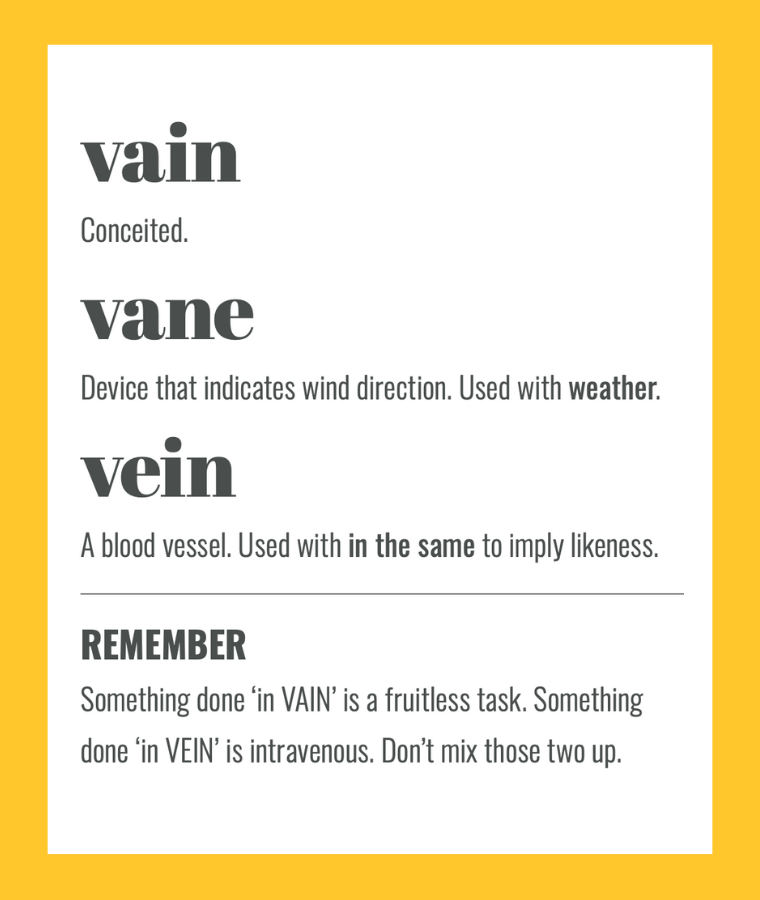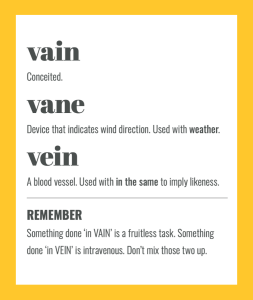Vain vs vane vs vein: simple tips to remember the difference

The words VAIN, VANE and VEIN are easy to confuse because they sound the same – they’re homophones – but their meanings are very different!
These simple spelling and usage tips will help you remember the difference between VAIN, VANE and VEIN.
When to use VAIN
VAIN is an adjective that describes someone who’s conceited – like the guy in the famous Carly Simon song, You’re So Vain.
VAIN can be used in a sentence like this:
“He was arrogant and VAIN.”
VAIN is also used in the phrase ‘in VAIN’, which describes a fruitless task.
(Don’t write ‘in VEIN’ unless you mean intravenous. There’s a big difference!)
When to use VANE
The word VANE usually proceeds ‘weather’.
A weather VANE is a device that indicates wind direction. You’ve probably seen them on the top of churches.
VANE can be used in a sentence like this:
“The class made their own weather VANES from paper and a straw.”
When to use VEIN
VEIN is a noun that describes a blood vessel.
It can be used in a sentence like this:
“I tried giving blood but they couldn’t find a VEIN!”
VEIN is also used in the phrase ‘in the same VEIN’, which implies likeness.
I hope these tips help you to remember the difference between these commonly confused words in the future.
Get more tips in The Little Book of Confusables
Fun, memorable spelling and usage tips for 600 commonly confused words, packed into 300+ gorgeous pages for just £11.95. You’ll wonder how you managed without it!
2023 GOLD award winner at the eLit book awards.
No more confusing words!
Master 600 confusing words with The Little Book of Confusables: 300 gorgeous pages packed with memorable, fun spelling tips – from ACCEPT + EXCEPT to YOUNG + YOUTHFUL.



